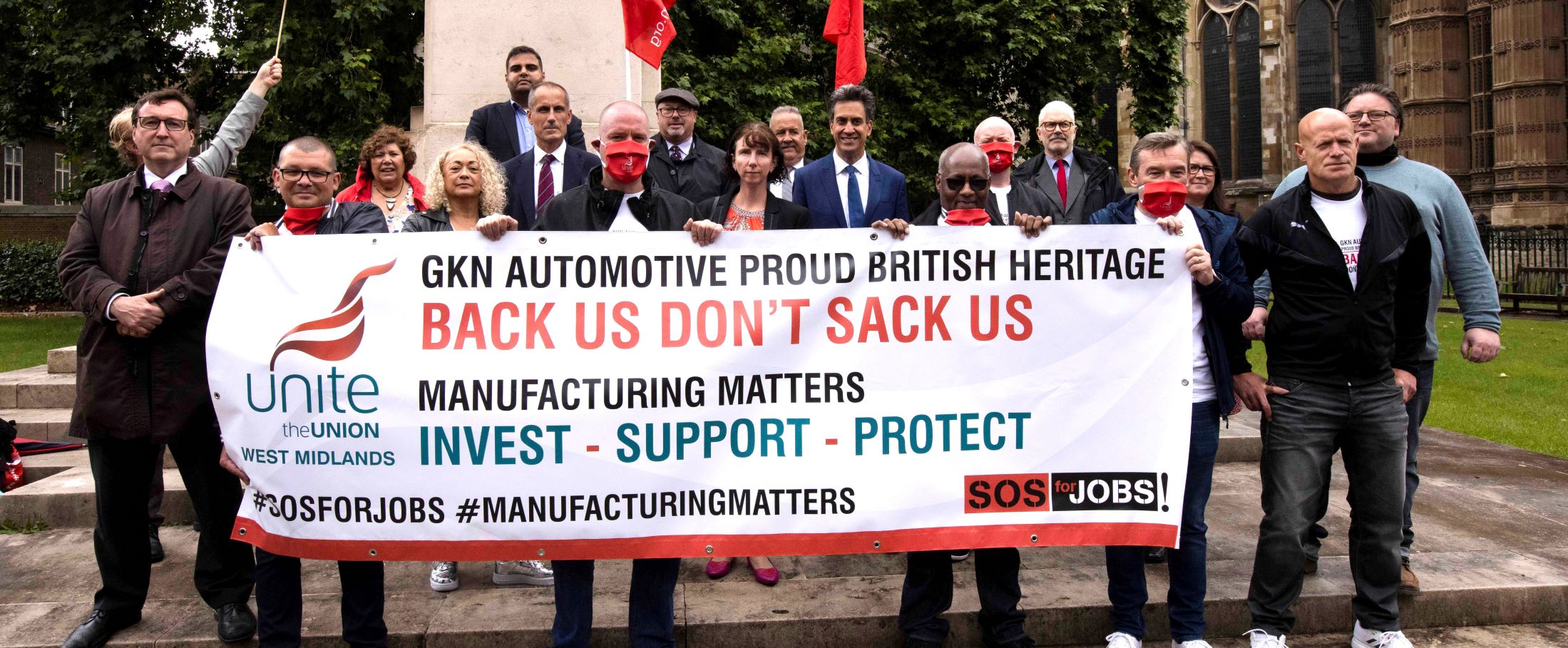Govt must engage with Unite now
Unite has warned that investment decisions by major carmakers on the production of up to 15 new models in the UK are â€hanging by a thread’ unless the government secures tariff free access to the European single market.
According to the Unite report â€Brexit on our terms’, talk by government ministers of a â€Hard Brexit’ and the uncertainty surrounding the UK’s trading relationship with Europe could deter carmakers from investing in their UK plants and see production move to Europe on models due to come in to production after 2020.
“The UK car industry is the most productive in the EU. Yet the uncertainty of Brexit could seriously compromise the continued resurgence of this world class industry,” said Unite general secretary Len McCluskey.
“Dozens of decisions, including new models to UK plants, must be made in the coming months. These crucial investment decisions will determine the future of the UK’s car industry. Ministers’ mixed signals on tariff free access to the single market, which consumes 80 per cent of the cars we produce, could leave our world class industry hanging by a thread,” he added.
The report by Unite, which represents over 500,000 manufacturing workers, highlights the key investment decisions which are due over the next two years on new car models ranging from the Honda Civic to the Range Rover Sport.
It also warns that suggestions by some ministers to revert to World Trade Organisation (WTO) tariffs of 10 per cent on exports and 4 per cent on imports would damage a resurgent car industry and decent manufacturing jobs.
According to the report, hundreds of thousands of jobs in the UK’s manufacturing and automotive industry would be at risk because of European exports and a reliance on a European wide supply chain which benefits from tariff free access to the single market.
“While many workers voted to leave the EU, they didn’t do so to be out of work or see their living standards suffer and rights at work torn up through a â€Hard Brexit’,” said McCluskey.
“The government’s commitment to an industrial strategy is welcome, but it will not get out of the starting blocks unless our manufacturing sector receives tariff free access to the single market and the assistance and commitments it needs to invest in a Brexit Britain,” he added.
David Bailey, professor of industry at Aston University explains in the report, “Automotive and engine assemblers like General Motors, BMW and Ford all import sizable inflows of components to the UK from other European Union operations.
“Anything which puts these trading relationships at risk, whether currency risk or higher transaction costs from having to deal with EU and UK regulations separately, reduce the likelihood of further investment.”
The report also lays out Unite’s blueprint to protect UK manufacturing jobs, investment and employment rights. In addition to tariff-free access to the single market, which is worth a massive £229bn to British manufacturing, these include:
Article 50 – The government must not rush to invoke Article 50 before a clear British negotiating position has a mandate from the people with a vote in parliament.
Workers shouldn’t pay the price for Brexit – In addition to protecting workers’ rights the government must support infrastructure and bring stability to manufacturing by creating a strong, stable internal market supported by public sector procurement.
A seat at the table for workers – As the collective voice for over 1.4m people, Unite has a unique voice which must be central to the negotiations for Brexit.
“We urge the government to engage with Unite now on the assistance urgently needed to support jobs, communities and a meaningful industrial strategy for this country,” said McCluskey.
“Government ministers must also outline a clear negotiating position which is open to democratic scrutiny by opposition parties and trade unions before triggering Article 50,” he added.
The full â€Brexit on our terms’ report can be viewed here.
 Like
Like Follow
Follow
